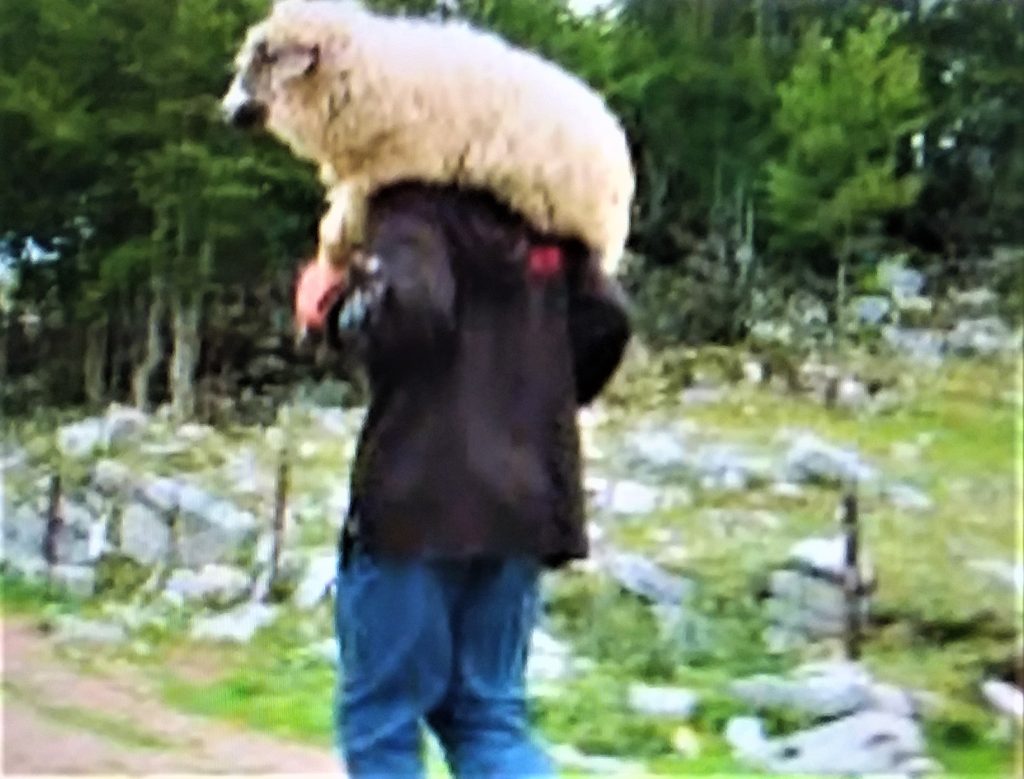
(For the audio version of this blog, please visit: http://brothersinchristcmf.org/wp-content/uploads/2022/09/Mass-Blog-for-the-24th-Sunday-in-Ordinary-Time-2022.mp3)
The Christian model of a good shepherd doesn’t make much sense to the casual reader. In this Sunday’s gospel reading (Lk 15:1-32), Jesus asks, “What man among you having a hundred sheep and losing one of them would not leave the ninety-nine in the desert and go after the lost one until he finds it?”
The casual reader might raise his hand saying, “ME! I wouldn’t! Why would I risk losing the other 99 to find one loser?”
But if you research good shepherding, Jesus seems to have a method to his madness. According to Farmingbase.com, sheep get lost easily, and it usually starts with ONE going astray.
“It’s not something they ‘think ‘about; it’s just conditioned in their brains from birth,” states an article on this agricultural site. “Even when being watched by a shepherd it’s easy for sheep to get lost. All it takes is for one member of the flock to wander off and the rest will follow. … If you take to the internet you’ll find dozens of stories of shepherds who lost their sheep and went through hell searching for them. Sometimes they succeed, other times they fail miserably.”
So why would a shepherd go through hell to find ONE sheep? According to the best practices of the Good Shepherd, if you can find a lost sheep and teach it not to stray, maybe it will keep others from getting lost. Moses was one such good sheep, judging by Sunday’s first reading (Ex 32:7-11, 13-14).
The flock of Israel had gone wildly astray, and the God shepherd told Moses He was ready to give up on them. But God let this prize sheep make the case for why his lost brothers shouldn’t stay lost. He impresses the Master with an understanding of the map to His Kingdom and its importance to those sheep with whom God made the covenant that would protect future generations from getting lost.
“Remember your servants Abraham, Isaac, and Israel, and how you swore to them by your own self, saying, ‘I will make your descendants as numerous as the stars in the sky; and all this land that I promised, I will give your descendants as their perpetual heritage.'”
The challenge with that best practice on us human sheep is evident when our attraction to unfamiliar territory becomes a vice by which we want to stay lost. No sheep was more lost in his vices than Saul of Tarsus before he found his destiny as Paul. In Sunday’s excerpt from his letter to Timothy (1 Tm 1:12-17), he explains what a lost sheep he was before the Good Shepherd found him and made him into the kind of good sheep that helps orient other lost ones.
“Of these I am the foremost, he writes, but for that reason I was mercifully treated, so that in me, as the foremost, Christ Jesus might display all his patience as an example for those who would come to believe in him for everlasting life.”
We sheep are easily spooked and can get disoriented easily, so God’s Good Shepherd continues to find prized sheep who keep the rest of us on track. Prized sheep like Paul tend to never get lost again because as they ride high on the shoulders of the good shepherd who saved them, they get the lay of the land. Seeing God’s Kingdom from that perspective makes our world less intimidating and confusing.
Our good shepherd came to us as the Lamb of God—as one of us, but with the wisdom to write parables like “The Prodigal Son.” That Holy Spirit is the same one that continues to raise us from lost sheep to found children with the wisdom to understand, emulate and model the saving love of our Father.
–Tom Andel